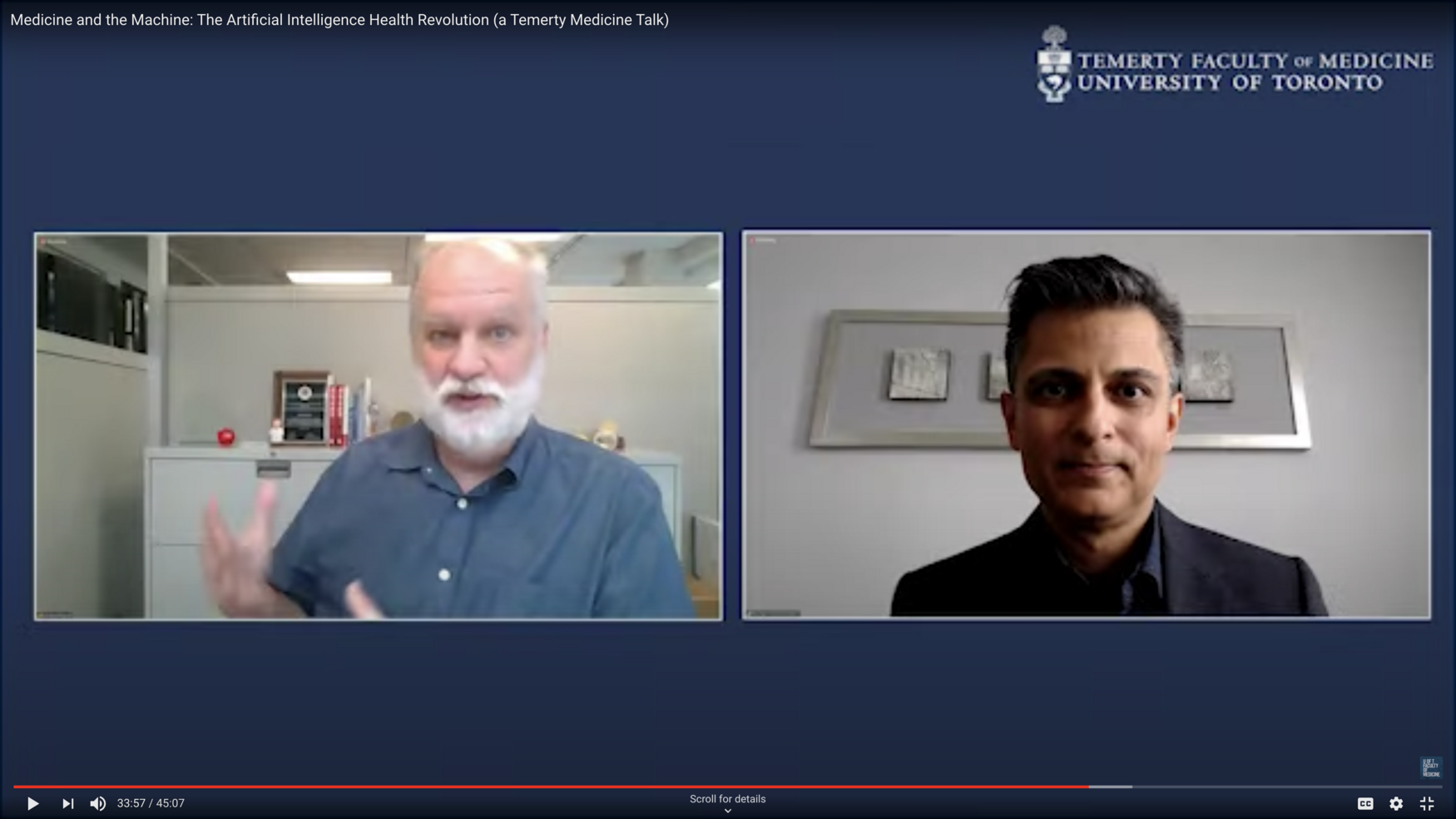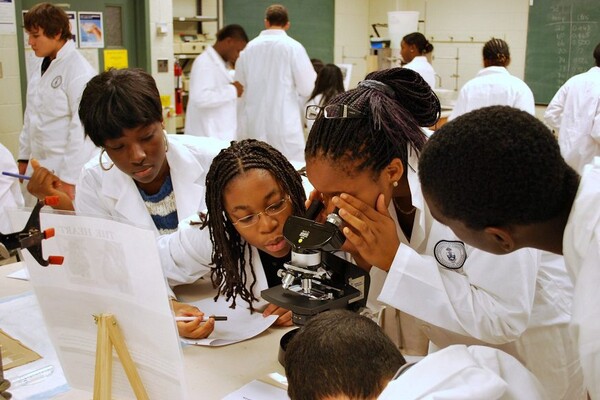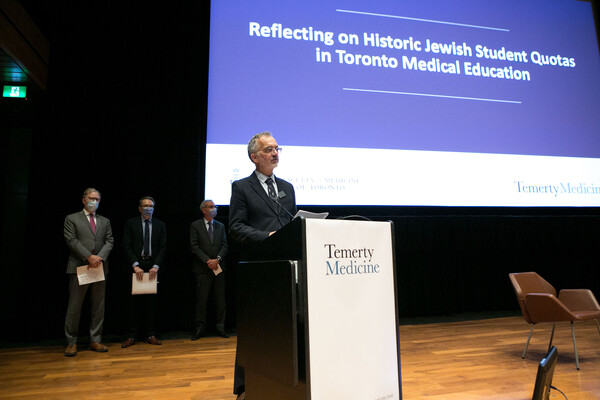Mobile Menu
- Education
- Research
-
Students
- High School Outreach
- Undergraduate & Beyond: Community of Support
- Current Students
- Faculty & Staff
- Alumni
- News & Events
- Giving
- About


Artificial Intelligence, far from being a replacement for doctors, can be a powerful tool for better patient care in the next 10 years. But doctors have to first embrace — not avoid — the technology.
That was one take-away from the Temerty Medicine Talk hosted last week by the University of Toronto, the first of a three-part series that features experts from the Temerty Faculty of Medicine discussing current issues in medicine and health.
The talks are moderated by The Globe and Mail’s health columnist André Picard and celebrate the university’s recent $250 million-dollar gift from James and Louise Temerty and the Temerty Foundation.
Professor Muhammad Mamdani spoke with Picard in the first talk. Mamdani is director of the newly established Temerty Centre for AI Research and Education in Medicine (T-CAIREM) at U of T.
“A survey in South Korea, for example, suggests that about six per cent of physicians actually feel very comfortable and confident about AI,” said Mamdani, who is also vice president of data science and advanced analytics at Unity Health Toronto and the Odette Chair in Advanced Analytics.
Understanding that technology will be essential as it increasingly plays a role in diagnosing and treating patients. Mamdani described examples, already in use, of how AI can help alert physicians to the need for urgent care. Unity Health Toronto has deployed a new system in clinical practice to identify an intracranial hemorrhage within minutes using AI, compared with over three hours for a radiologist diagnosis.
“I think we will see more and more of these AI tools deployed in hospitals. There may not be radical changes — but things will evolve in, let's say 10 years, to a point where clinicians will likely have the AI algorithms reading some of our images in the radiology suite, and we will have AI algorithms monitoring our patients and telling us in advance when somebody's going to crash,” Mamdani said.
The university established T-CAIREM in part to provide the training that current and future physicians will need to harness AI. The centre came to be formally on July 1, 2020, and has three themes: education, research and infrastructure.
“We've created a centre that really is relevant to medicine,” Mamdani said. “Because we understand our clinicians, we’ll be able to develop tailored programs that are not only time efficient, but also very effective in communicating exactly what AI is and what clinicians really need to know at the end of the day, so they can be much more informed and effective at using these technologies to provide the best possible care.”
But AI will not be a panacea for all problems in the health system, Mamdani cautioned.
“I think one of the myths is that AI just magically happens and we can solve any problem with AI. You can't have AI in a lot of cases without data, so it is a whole process of getting the data infrastructure right. Further, we have to be very, very, careful about which questions are amenable to AI because there are many questions where AI will not help you much in actual clinical practice.”
The next Temerty Medicine Talk will focus on COVID-19 and will feature U of T experts in infectious diseases, virology and biochemistry. Check the Temerty Medicine events listing for details next week.


